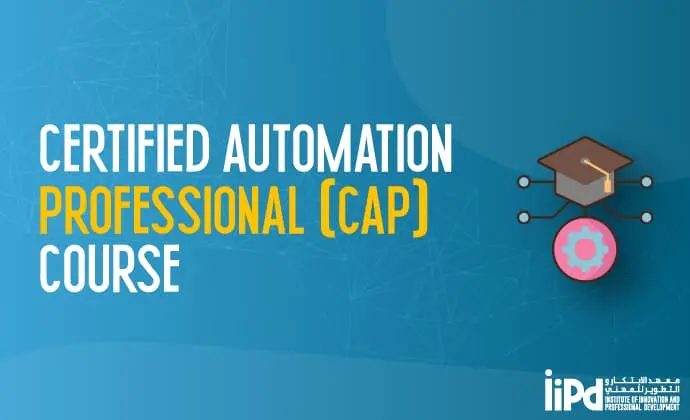
Course Details
Are you interested in pursuing a career in automation and control systems? Do you want to enhance your skills and knowledge in this rapidly evolving field? Look no further than the Certified Automation Professional (CAP) course offered in Dubai by IIPD Global.
The CAP course is designed to provide professionals with a comprehensive understanding of automation and control systems, enabling them to excel in their careers and contribute to the growth and success of their organizations. Whether you are a fresh graduate or an experienced professional seeking to upgrade your skills, this course is tailored to meet your needs.
Course Duration: 3 days
Objective:
- Define the scope and format of the CAP exam
- Compare process variable measurements and control valve selections
- Discuss how the various types of control technologies are used in industrial automation, including process control from basic to advance control, discrete, batch, motor and, motion control
- Identify the range of digital communications used in automation and how these are used in system integration
- Explain when safety instrumented systems (SISs) are needed and how they are specified
- Recognize the importance of electrical issues that relate to grounding and noise
- Apply the critical areas of automation opportunity identification and project justification
- Interpret the best practice methodology for automation project execution
Course Outline:
- Field Devices:
Pressure, Level, Temperature, and Flow Measurement | Analytical Measurement | Discrete Field Devices | Control Valves Communication Concepts - Control and Simulation:
Response and Loop Characteristics | PID Control | Advanced Regulatory Control | Multi-variable Control | Distributed Control System | Control Strategy Design Steps | Documentation | Batch Control | Discrete Control | Drive Control | Motion Control - Operator Interface and Alarm Management:
Human Machine Interface (HMI) | Historical Data - Integration:
Communications | Manufacturing Execution System (MES) | Network Security - Safety, Reliability, and Electrical:
Safety Instrumented Systems (SIS) | Hazardous Area Classification | Protection Techniques | Intrinsic Safety | Pressurized Enclosures | Grounding, Shielding, and Interference - Maintenance Management:
General Maintenance Activities | Maintenance Repair and Improvement | Computerized Maintenance Management | Maintenance Execution Responsibilities
Course Details
Workflow and Project Leadership:
Opportunity Identification and Project Justification | Communications and Team Processes
Classroom/Laboratory Exercises:
Practice taking CAP exam-style questions.
Certification of Completion:
A Certificate of Completion indicating the total number of CEUs earned will be provided upon successful completion of the course.
Methodology: Online, Batch-wise
Don't miss this opportunity to become a Certified Automation Professional and take your career to new heights. Enroll now at IIPD Global and join a vibrant community of professionals dedicated to advancing the field of automation and control systems.








